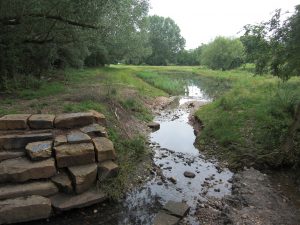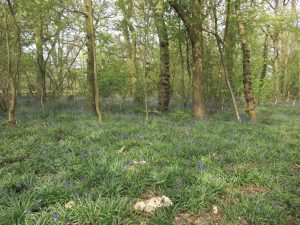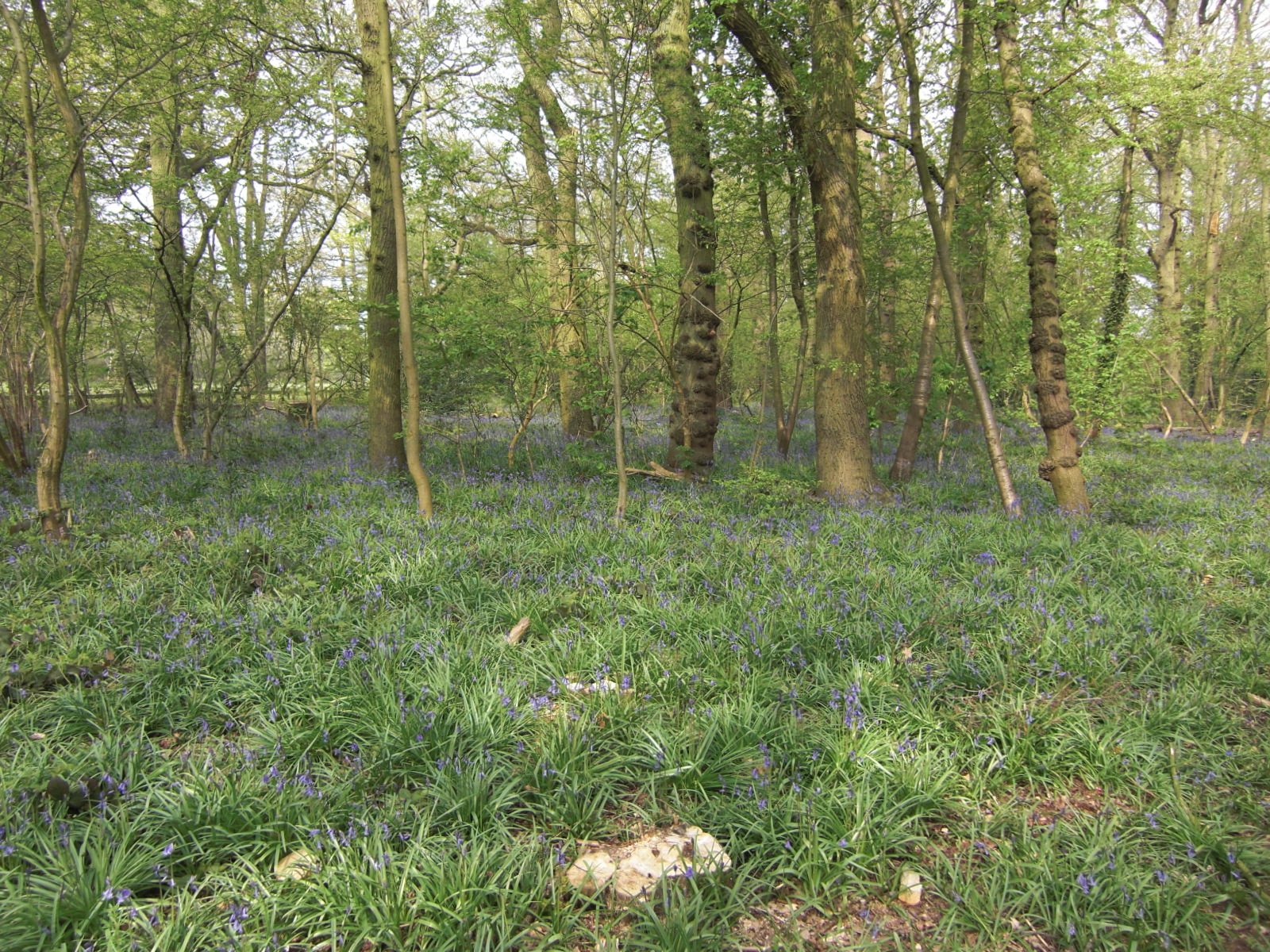2022 Awards Winners Spotlight: Large Scale Nature Conservation
Solihull Habitat and Nature Improvements Project
Solihull Metropolitan Borough Council (SMBC)
This project was developed and delivered by SMBC’s Conservation of the Historic Environment, Landscape Architecture, Urban Design and Ecology Team. The three year programme of woodland, grassland, wetland and water quality improvements was delivered across publicly accessible green space within Solihull, and was completed in Spring 2020.

SMBC successfully applied for external funding to undertake 24 individual habitat projects across Solihull. The Environment Agency (EA) and Warwickshire Wildlife Trust (WWT) were strategic partners on the delivery of the project. Project works included:
- Five species-poor grassland sites totalling over 30 hectares enhanced by transferring green hay harvested from local WWT Sites of Special Scientific Interest (SSSI) meadows in summer 2018.
- Four enhancement schemes to renaturalise engineered watercourses, with associated wetland habitat creation, a reed bed creation in 2018, and two schemes in 2019 including the transformation of a park lake into a naturalised brook and wetland.
- Tree thinning and management works on 12 woodlands with eight carried out between 2018 and 2020, including access improvements and replacement woodland planting across a hectare of one wood impacted by removal of invasive grey poplar.
- A tree planting scheme within one ward in 2019 with the planting design developed in consultation with friends groups, providing 450 trees, native thicket and 700 metres of hedgerow to establish and reinforce green corridors in parks and along highway open space.
Standardised methodologies were used to monitor ecological improvements. Baseline surveys were conducted at all sites and are being repeated to a specified timescale depending on the habitat type and nature of the intervention. All monitoring data is compared to the baseline and previous years data and is then added to the management plan so that any future amendments are centrally recorded.

Condition monitoring assessments developed by Warwickshire Wildlife Trust for woodland and grassland sites have been used. These methodologies have been specifically adapted for Warwickshire from Natural England’s SSSI condition monitoring assessments. For wetland sites, the team has used a combination of geomorphology surveys (using the Modular River Survey Methodology devised by the EA), water quality measurements and macroinvertebrate surveys to establish ecological enhancements.
The project delivered 100 hectares of enhanced habitat which collectively will increase and strengthen the capacity of the natural environment to deliver ecosystem services across Solihull and provide resilience and mitigation against climate change. The wetland projects at Smelly Brook, Meriden Park and Olton Jubilee Park have also made improvements to water quality. Baseline water quality assessments at these sites showed low dissolved oxygen levels (60%), which have been increased through the provision of new reedbeds,
meanders and the introduction of gravels.
The project had a total budget of £1.8million, of which 50% was required to be provided by the Council as matchfunding for external ERDF funding. The Council was unable to provide this directly but used several S106 Biodiversity Offsetting contributions to provide the majority of monies required, further helped by funding from the EA. Staff hours to work on the project were donated as ‘in kind’ funding. Furthermore, all of the projects have been designed to avoid any increases to the council’s grounds maintenance budget. This will ensure that management is able to be maintained by SMBC in the long term.
This impressive investment in the natural environment of Solihull ensures the project has a lasting positive impact and legacy for local communities, contributing to the quality of place and to people’s quality of life, health and well-being.
We are posting further information on each of the 2022 CIEEM Awards Winners over on our blog.

